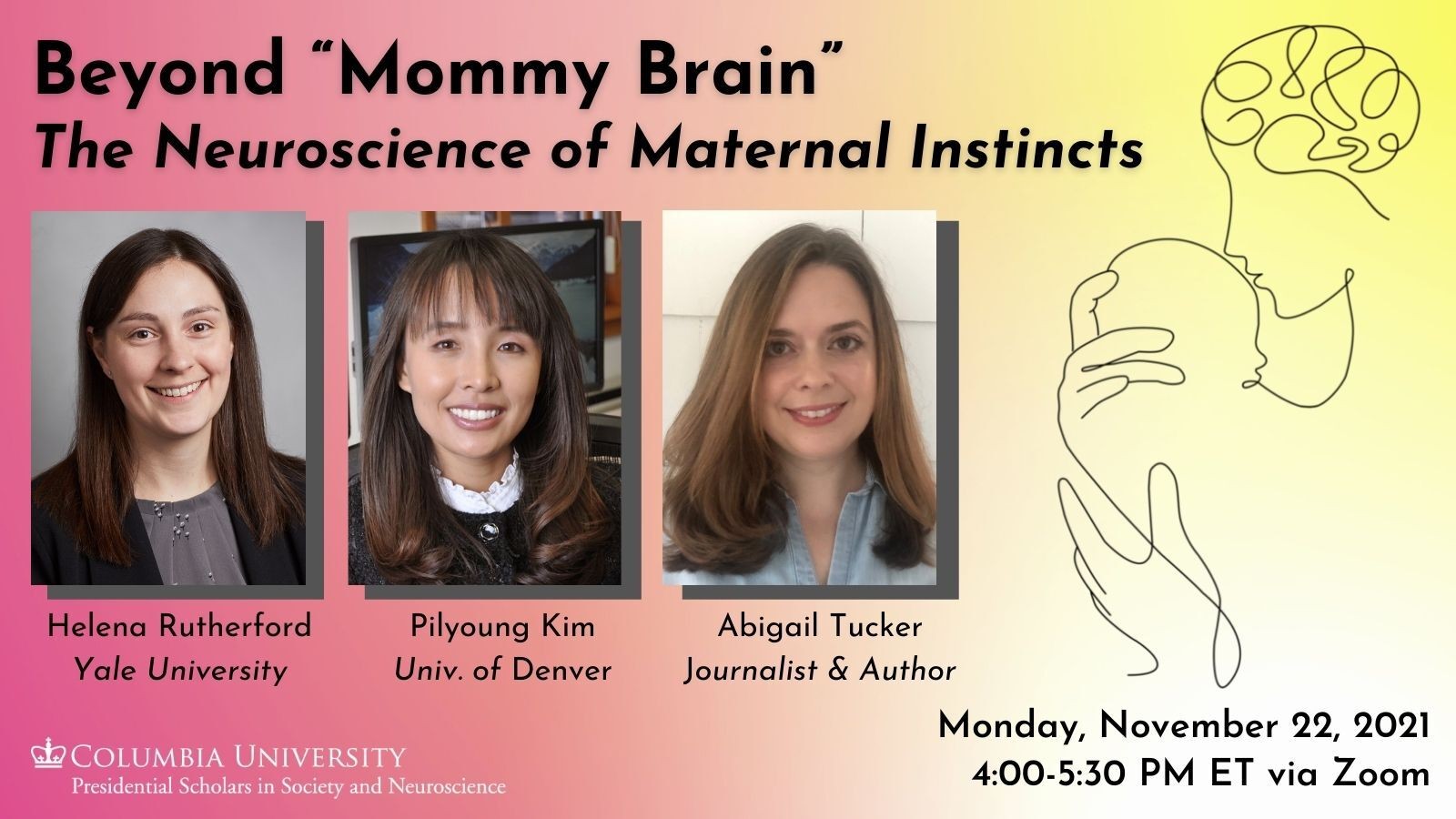Event Description
Despite motherhood and successful caregiving being essential for the survival of our species, surprisingly little has been known about how the human brain adjusts to this new phase of life until recently. The new science of pregnancy and parenting has revealed how this period in adulthood involves brain changes that shape adaptation to the challenges of parenthood, underlying parental instincts, attachment, behavior, and emotions - far from the negative connotations of “mommy brain” we are familiar with. Fundamental questions remain about to what extent maternal “instincts” are truly innate, or learned. What happens when these changes do not happen so readily? What is the role of neuroscience in understanding how one learns to be a mother - and how can these ideas and data be communicated constructively?
Event Speakers
- Helena Rutherford, Assistant Professor, Yale Child Study Center, Yale School of Medicine
- Pilyoung Kim, Associate Professor of Psychology, University of Denver
- Abigail Tucker, journalist and author
- Moderated by Clare McCormack, Presidential Scholar in Society and Neuroscience, Columbia University
Event Information
Free and open to the public; RSVP required via Eventbrite. Registered attendees will receive an event link shortly before the seminar begins. This event is part of the Seminars in Society and Neuroscience series.
The Center for Science and Society makes every reasonable effort to accommodate individuals with disabilities. If you require disability accommodations to attend a Center for Science and Society event, please contact us at [email protected] or (212) 853-1612 at least 10 days in advance of the event. For more information, please visit the campus accessibility webpage.

